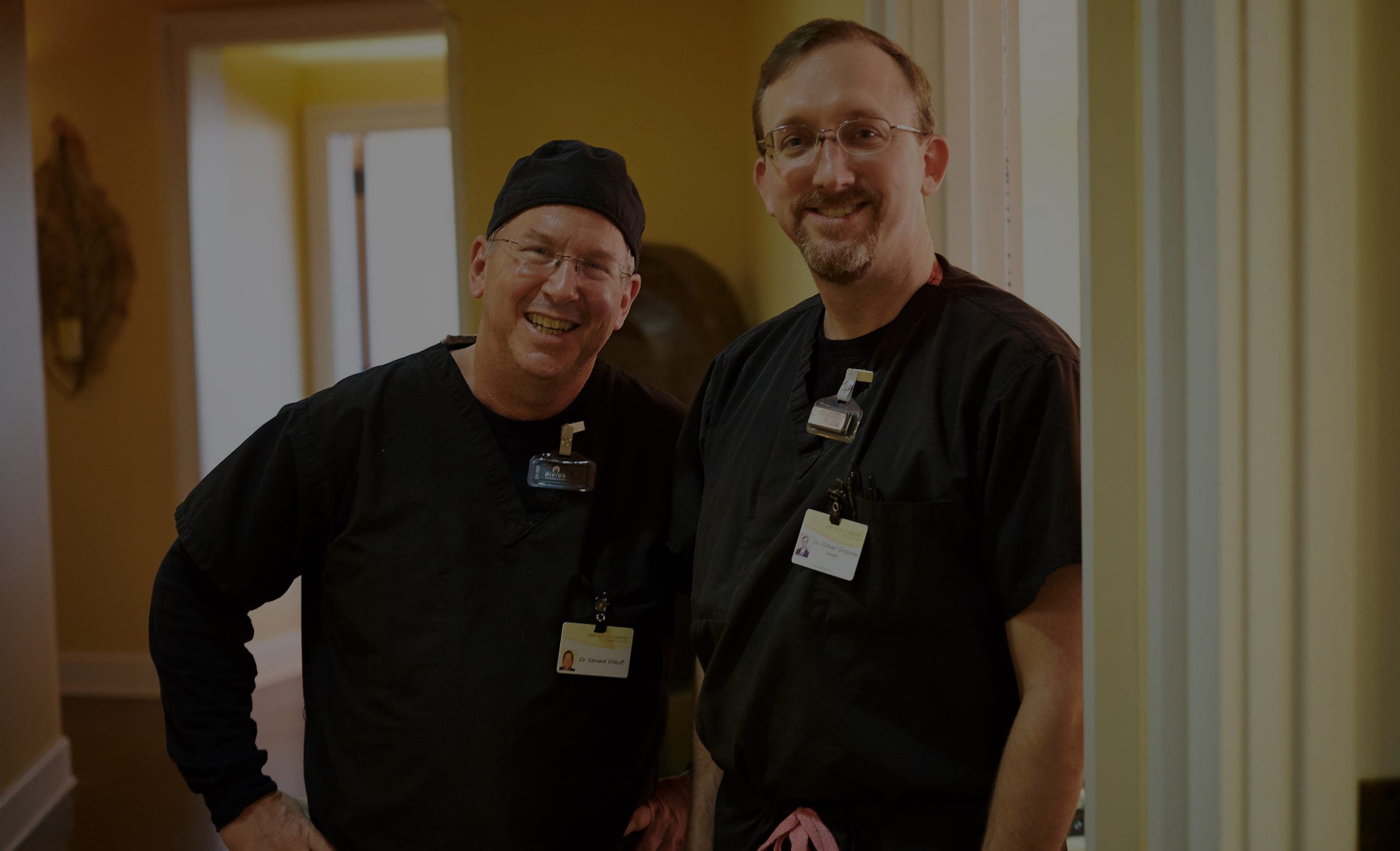Fertility Consultation with PCOS


PCOS is the most common cause of infertility. Therefore, if you have it or suspect you do, there’s a good chance that you’ll need some help conceiving. Your first step to getting pregnant with PCOS: a fertility consultation.
The good news? Reproductive endocrinologists are very familiar with PCOS and can answer your questions. The bad news? Realizing you’re infertile may be overwhelming and you may not remember to ask everything you intended or you may not know exactly what to ask.
Looking back at my own journey, my consult let me know that we were on the correct path. However, after almost two total years of fertility treatments (resulting in three beautiful IVF babies), I have realized that PCOS was a major factor in our struggle to conceive. I wish I would have connected more of those dots with questions during that initial infertility consultation.
What if I could go back? What if I could do that meeting again? What would I ask and what would have been the answer? That’s what I’m going to talk about today. Amazingly, I got to “redo” my consult, this time with reproductive endocrinologist Dr. Edward Ditckoff of CNY Albany. I’ll be quoting and paraphrasing his answers as well as adding in a few of my thoughts in italics.
What are the typical signs and symptoms of PCOS?
“Women who have irregular periods, may have excess facial hair (my least favorite symptom), [and] may be overweight. On ultrasound, their ovaries appear to have multiple cystic structures; perhaps at least fifteen small follicles in each ovary. And unfortunately, sometimes these women have a thickened uterine lining…because they are not ovulating.”
“Furthermore, some of these women have acne problems and some of these women have hair loss…They might even have pigmentation on their skin from having insulin resistance.”
“Generally, these women will have a high AMH level (AMH is a hormone that can help determine a women’s egg count also known as an ovarian reserve) because they have a high ovarian reserve and they’re very sensitive to fertility drugs.”
Do I need to be officially diagnosed with PCOS (as in, a doctor has diagnosed it) in order for it to be a consideration in my treatments?
“If a patient has an ovulation problem with irregular periods, it would give us insight on how to treat them if we knew they had poly-cystic ovaries. I wouldn’t say it’s necessary for your treatment, but I would say it’s helpful [while] looking at the overall plan.”
Adrenal hyperplasia: symptoms can mirror PCOS, so it may be worth undergoing tests to distinguish which condition is the actual cause of infertility. The treatment courses for the two conditions can be very different.
How does having PCOS affect my ability to get pregnant?
For women under 30 years of age with no fertility complications, the chance of getting pregnant per month is about 20% (10% at age 35 and 5% at age 40). With PCOS, that rate drops further because of the lack of ovulation.
“[Women with PCOS] have what we call an ovulation dysfunction, [which means they do not have] a normal LH surge; therefore, their ovulation is weakened. By having a weakened ovulation, there might not be sufficient progesterone being produced and the end result of this hormonal deficiency of progesterone can be an early pregnancy loss.”
Will my PCOS affect the course of treatment that CNY will suggest for me?
“It does depend on the remaining evaluation” (examples: a dye test and semen analysis).
Let’s pretend that all other fertility parameters are normal. How then, could PCOS affect my fertility treatment?
The treatment usually begins conservatively. For instance, using an oral medication, like Letrozole, to induce ovulation.
Women with PCOS, specifically those with high AMH levels, are often very sensitive to the injectable medications used in treatment courses like IUI and IVF. Therefore, a lower dosage is often used and some medications are favored over others.
On the plus side, older women (40+) with PCOS may be at an advantage because they have a higher ovarian reserve than typical women their age. Therefore, they can produce more eggs when using the stimulation drugs as part of an IVF cycle.
What is the most effective (typically) fertility treatment for those with PCOS?
“I think the most effective treatment is IVF for patients across the board…You’re going to have a higher chance of a pregnancy per treatment cycle and with IVF you’re going to have multiple pregnancy cycles or multiple pregnancy results resulting from one stimulation because the patient could potentially have a lot of eggs/embryos produced and could preserve their fertility.” (We had ten viable embryos, used four, and donated six, all off of one stimulation cycle.)
“IVF is the most effective as far as pregnancy rate per cycle.”
“Most people who have poly-cystic ovary alone with no other factors…if they will get pregnant with a drug like Letrozole [or] IUI, the majority will be pregnant by the third cycle. [For those patients], one could say the most effective route could be to try ovulation induction with an oral tablet to be conservative then if they’re not pregnant by the third cycle to progress directly to IVF.”
How does my weight (if overweight or obese) affect my ability to get pregnant?
One effect may be that the body’s ability to absorb medications injected subcutaneously can vary, even becoming unpredictable if severely obese, because of the amount of tissue at the injection site.
If a severely obese patient follows an IVF treatment course, she could be at a higher risk during anesthesia.
When a successful pregnancy is achieved, women with higher weights are more prone to complications during pregnancy.
Some women who are overweight have an ovulation deficiency that they wouldn’t have if they were a “normal” weight. As a result, some women are lumped into the PCOS category who do not actually have that condition. These are the women who may be able to conceive naturally after losing weight.
However, whether a woman is categorized as having PCOS because of weight and an ovulation deficiency or a hormonal imbalance (the traditional PCOS cause), the course of treatment is very similar.
It is also worth noting that having PCOS can cause weight gain.
Do I need to lose weight (if overweight or obese) in order to do fertility treatments or increase my chances of conception?
Being overweight can contribute to ovulation dysfunction. In some cases, if a patient has PCOS and is overweight, losing 5-10% of her weight can result in her getting pregnant without any treatment at all. (If this may be you, try the Keto diet. It helped me.)
Since PCOS affects hormone levels, will I have to use more medications than a typical fertility patient?
“Most PCOS patients will have an elevated AMH, if it’s traditional PCOS, and therefore, these women actually need less medication. There is a great variability in how obese patients will respond. [In addition,] not all PCOS patients have an elevated ovarian reserve.”
There are also many supplements known to specifically improve the fertility of PCOS patients.
In general, knowing I have PCOS, what kinds of things (besides taking medications) can I do to help increase my chances of conception while going through fertility treatments?
As already discussed, the loss of weight, especially if obese, can be beneficial. If the patient has Insulin resistance, treating that can assist with achieving pregnancy.
What services does CNY offer in its spa portion that could specifically benefit someone with PCOS?
Any type of relaxation is beneficial to someone undergoing fertility treatments. Acupuncture also could be helpful since it may assist with the ovulation process.
Is there a cure or a way to fix PCOS?
“As far as I’m aware, there’s really no cure for PCOS. You can only treat the underlying factors.”
Women with PCOS who are overweight or obese, may be able to “fix” PCOS with weight loss. “But if someone has a genetic condition for PCOS…you can’t really [cure] that.”
“If a [patient wants] to become pregnant, we talk about various treatments. We can attempt ovulation induction, use of injectable medications or oral medications and IVF. There are only ways to treat PCOS, but not cure it.”
“Sometimes patients have large polycystic appearing ovaries and upon laparoscopy, you could have surgery and puncture a lot of those cysts and the hormone profile on a lot of these patients will become normal. However, this normalization generally lasts no more than six months to a year and the problem with this treatment is it’s associated with scar tissue. So, in other words, you might be able to treat someone in the short term for their ovulation problem, but you might cause other problems. Plus, if you destroy too much of the ovary, there have been reports of ovarian failure. So even though people do offer ovarian drilling for these patients, it’s has a potential downside as well. (Side note: Dr. Kiltz performed ovarian drilling on me about a month before my successful IVF cycle began.)
Get Started, Ask Questions!
Thank you to Dr. Ditckoff for participating in my PCOS-focused consultation.
The consult can be daunting and maybe even scary, especially if you’re still coming to terms with the fact that you need help to conceive. But the consult is your chance to ask questions. It’s your shot to pick a very well-qualified medical professional’s brain, and it sets the tone for your entire fertility treatment.
Ask questions. Ask follow-up questions. And then follow up those follow-up questions with more questions. The more you know going into your treatments, the more comfortable you’ll be, and comfort, just like positivity, faith, and hope, is a key element to achieving your goal: that precious baby who will change your life.
Make your miracles happen today!



